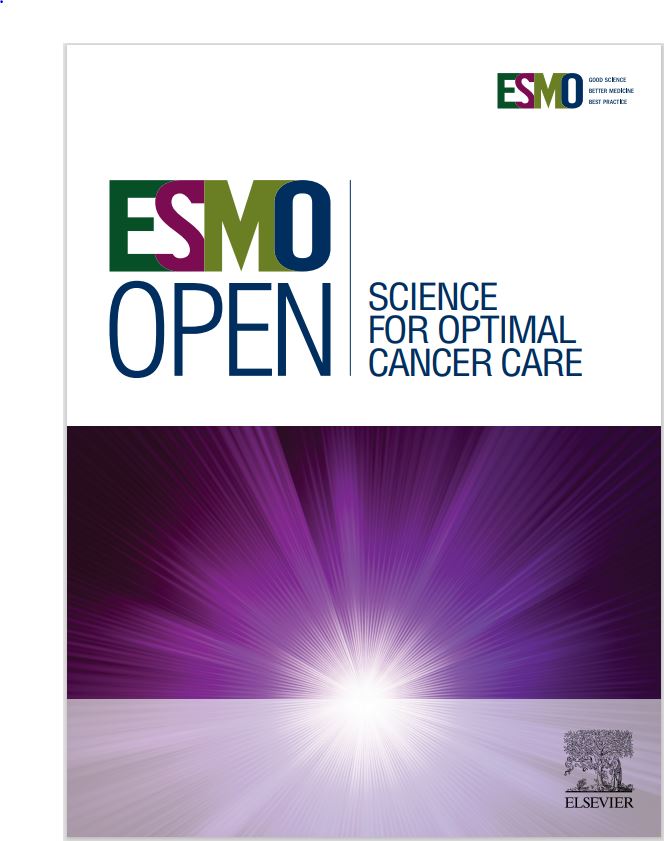Cardiovascular toxicity of breast cancer treatments: from understanding to enhancing survivorship care
IF 7.1
2区 医学
Q1 ONCOLOGY
引用次数: 0
Abstract
The significant decline in breast cancer (BC) mortality, largely driven by advancements in drug development, makes survivorship an absolute priority. Adverse events induced by anticancer treatments, particularly long-term and irreversible complications, have emerged as a major concern for BC survivors. Many anticancer therapies used in BC are associated with an increased risk of cardiovascular (CV) toxicity which may lead to treatment discontinuation and negatively affect clinical outcomes including long-term survival. Moreover, the occurrence of late CV adverse events can significantly impact the quality of life of BC survivors. Timely recognition and management of CV toxicity is therefore crucial. Before the initiation of potentially cardiotoxic therapies, a careful risk–benefit evaluation should be carried out in all patients with BC. Over the past decades, the field of cardio-oncology has emerged to deal with these challenges. Importantly, a better understanding of the mechanisms underlying CV toxicity is crucial in order to improve strategies to diagnose, monitor, and treat and ideally prevent the CV events related to different cancer treatments.
In this review, we aim to provide an overview of the main CV toxicities associated with contemporary BC treatments. Moreover, we highlight the need to balance the expected benefits of anticancer therapies while preserving CV health in both the early and advanced settings.
乳腺癌治疗的心血管毒性:从认识到加强生存护理
乳腺癌(BC)死亡率的显著下降,主要是由于药物开发的进步,使生存成为绝对优先考虑的问题。抗癌治疗引起的不良事件,特别是长期和不可逆的并发症,已成为BC幸存者的主要关注点。许多用于BC的抗癌治疗与心血管(CV)毒性风险增加相关,这可能导致治疗中断并对临床结果(包括长期生存)产生负面影响。此外,晚期CV不良事件的发生可以显著影响BC幸存者的生活质量。因此,及时识别和管理CV毒性至关重要。在开始潜在的心脏毒性治疗之前,应对所有BC患者进行仔细的风险-收益评估。在过去的几十年里,心脏肿瘤学领域已经出现,以应对这些挑战。重要的是,更好地了解CV毒性的机制对于改进诊断、监测、治疗和理想预防与不同癌症治疗相关的CV事件的策略至关重要。在这篇综述中,我们旨在概述与当代BC治疗相关的主要CV毒性。此外,我们强调需要平衡抗癌治疗的预期益处,同时在早期和晚期环境中保持心血管健康。
本文章由计算机程序翻译,如有差异,请以英文原文为准。
求助全文
约1分钟内获得全文
求助全文
来源期刊

ESMO Open
Medicine-Oncology
CiteScore
11.70
自引率
2.70%
发文量
255
审稿时长
10 weeks
期刊介绍:
ESMO Open is the online-only, open access journal of the European Society for Medical Oncology (ESMO). It is a peer-reviewed publication dedicated to sharing high-quality medical research and educational materials from various fields of oncology. The journal specifically focuses on showcasing innovative clinical and translational cancer research.
ESMO Open aims to publish a wide range of research articles covering all aspects of oncology, including experimental studies, translational research, diagnostic advancements, and therapeutic approaches. The content of the journal includes original research articles, insightful reviews, thought-provoking editorials, and correspondence. Moreover, the journal warmly welcomes the submission of phase I trials and meta-analyses. It also showcases reviews from significant ESMO conferences and meetings, as well as publishes important position statements on behalf of ESMO.
Overall, ESMO Open offers a platform for scientists, clinicians, and researchers in the field of oncology to share their valuable insights and contribute to advancing the understanding and treatment of cancer. The journal serves as a source of up-to-date information and fosters collaboration within the oncology community.
 求助内容:
求助内容: 应助结果提醒方式:
应助结果提醒方式:


